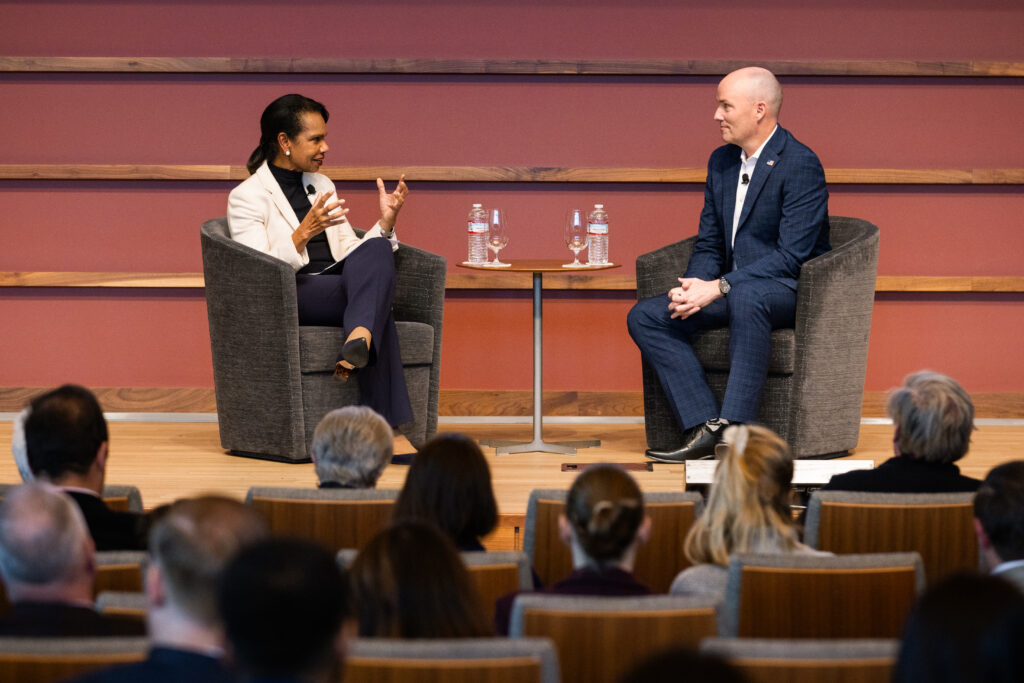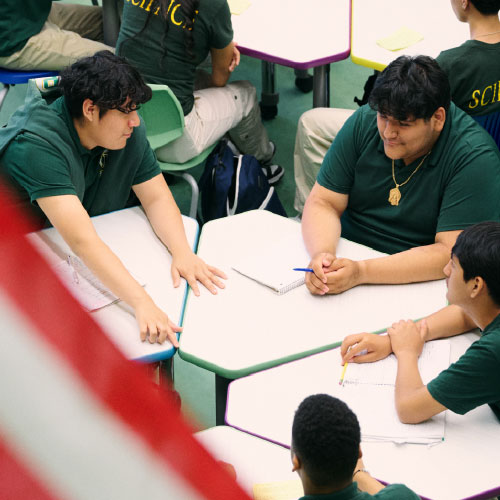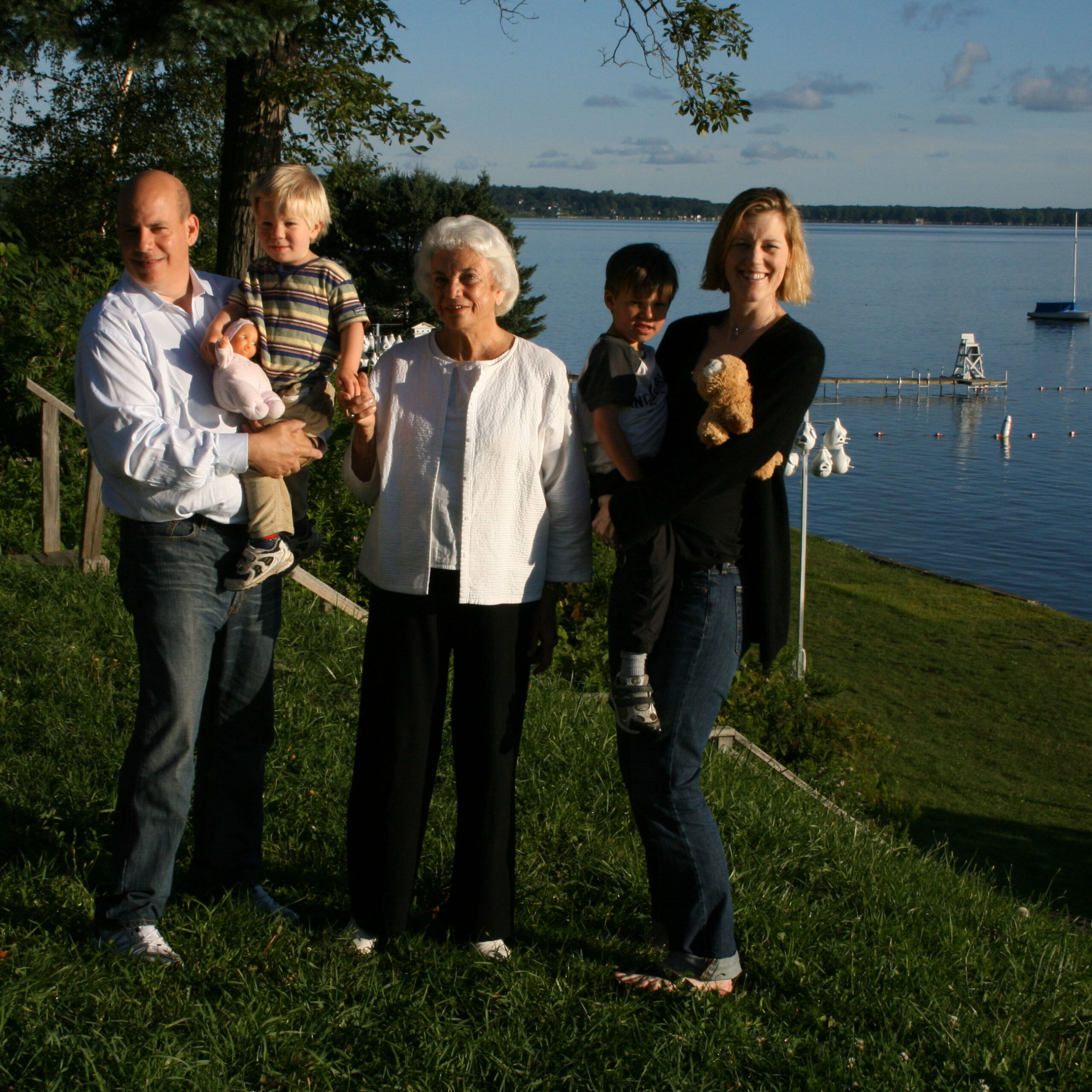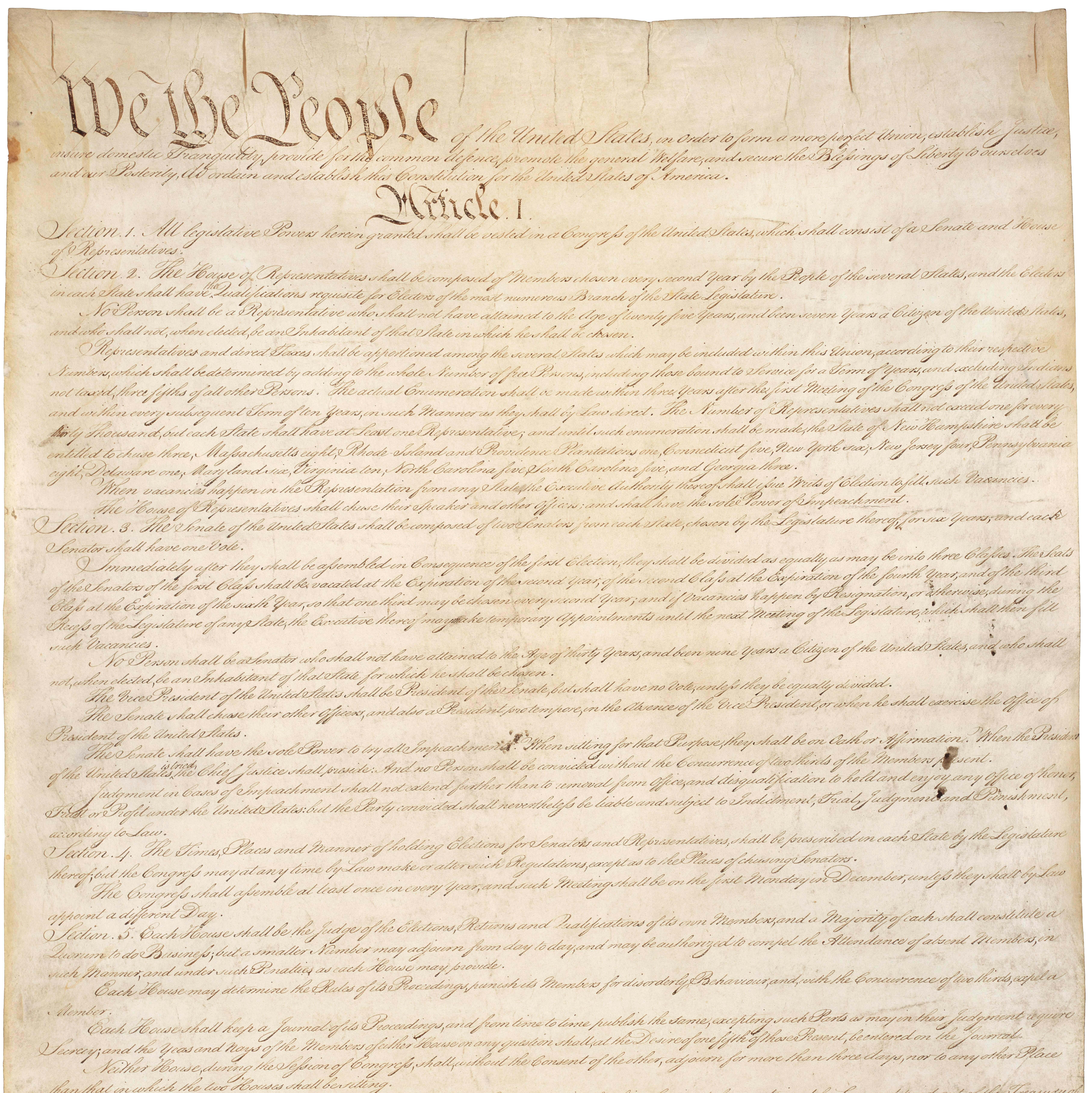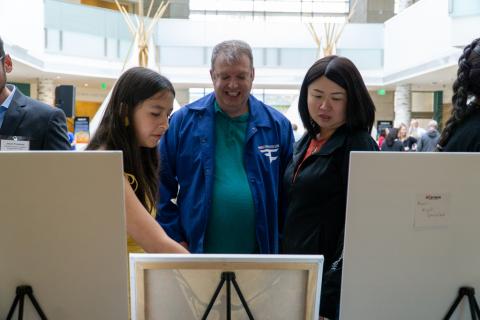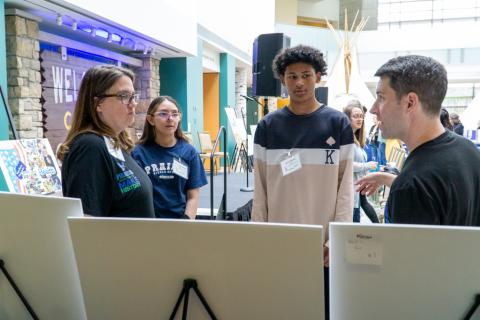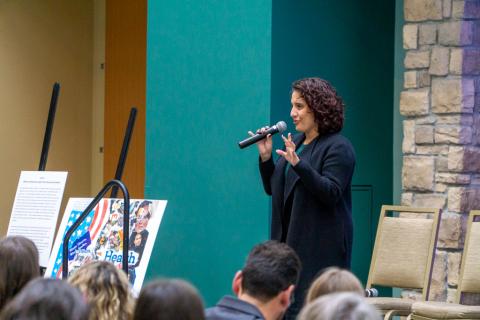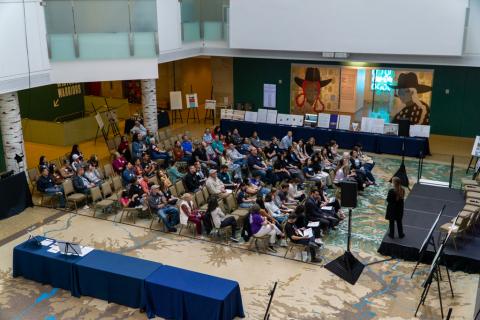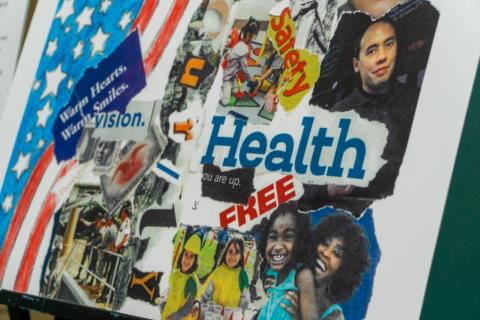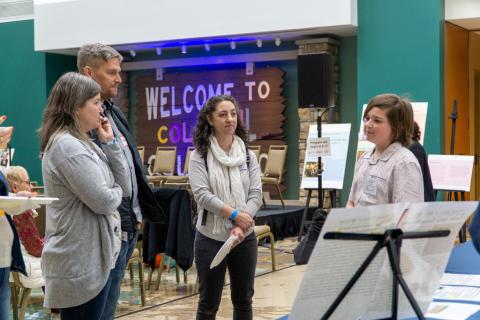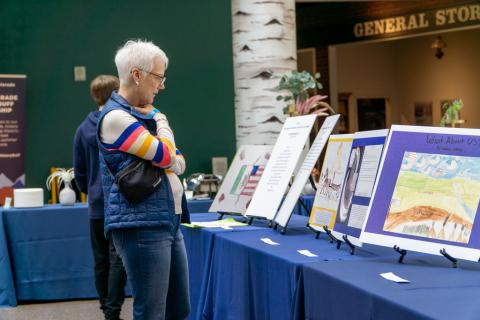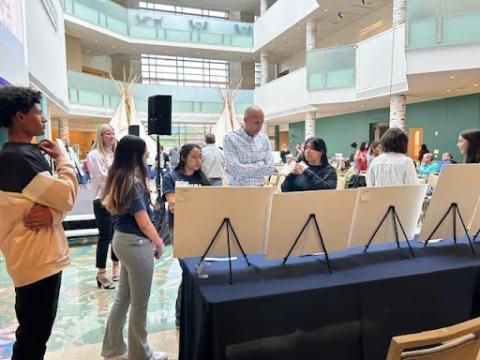As we carry the energy of Civic Learning Week (CLW) 2025 forward, I am reflecting on the momentum we witnessed across the country. The key takeaway for me coming out of CLW is that the civic fabric of America, while frayed, remains durable. New research shows public support for civic education is sky-high. Large majorities believe that what unites us are the founding principles of our constitutional democracy and that the highest responsibility of citizenship is protecting each other’s liberties.
A heat map of local civic action from recent weeks, covering everything from classroom lessons about the Constitution to people attending town halls and Governors signing civic education legislation, would show bright fluorescent splashes across all 50 states. That is what CLW is all about, and it is worth celebrating. We have excellent opportunities to maintain this momentum on the horizon, including around Constitution Day in September.
We also know that polarization, plummeting faith in institutions, and technology-driven disconnection will continue to stress our civic fabric to a degree we haven’t seen in generations. Coupled with the intensity of disruption in politics and policy right now, these trends are creating a fluorescence of their own, in the sense that just keeping up is akin to staring into the sun.
In this environment, civic education is the most powerful, underutilized tool we have to ensure that our individual liberties and our voice as the ultimate democratic arbiter are protected and that our children are prepared to navigate an increasingly complex world.
The fast-approaching 250th anniversary of the birth of the American experiment provides a fleeting opportunity to return civic knowledge, pride, and action to the center of American life after so many years of atrophy with obvious consequences. To paraphrase Sharon McMahon, the popular author and civics podcast host who graced us with her presence at CLW, too many of us have been robbed of this rich knowledge for too long – and it is time to get it back.
We built momentum for this critical work at CLW. I want to offer my heartfelt appreciation to all the individuals and organizations that spoke up for civics across the country, with special thanks to our CLW National Forum co-hosts from the Center for Revitalizing American Institutions at the Hoover Institution and our CLW and forum sponsors Bezos Family Foundation; Corporation for Public Broadcasting; Daniels Fund; Democratic Knowledge Project; Microsoft; More Perfect; PBS LearningMedia; Stuart Foundation; and Travelers.
Here are five additional steps forward I believe we all must take together to bring civics back to the center in our nation:
ONE: Educate America on the Founders’ Intent for Civic Education
The Founders unequivocally believed that civic education should be a sustaining pillar of constitutional democracy:
- Thomas Jefferson and James Madison extolled civic learning as a way to safeguard individual freedoms.
- And President George Washington, in his final Annual Address to Congress in 1796, said that the “education of our Youth in the science of Government” would prepare them to be “future guardians of the liberties of the Country.”
To them, civics and an ethos of service were at the heart of what education in America should be, but we have strayed very far from that vision in our schools and communities.
Key takeaway: Collectively, we need to lead with the Founders’ vision as we argue for returning high-quality civics to the center of how our children learn and prepare to be responsible citizens. We can tell this story and tell it often over the next 18 months.
More to explore:
- Watch the Civic Learning Week closing plenary with Condoleezza Rice, Tad and Dianne Taube Director & Thomas and Barbara Stephenson Senior Fellow on Public Policy, Hoover Institution, and Spencer Cox, Governor, State of Utah.
TWO: Focus on the State and Local
It would be hard to overstate the importance of continuing to go local and back to basics on civics at this moment:
- Local communities are where the most trusted institutions and leaders still reside.
- Policy gridlock and our saturated media environment make it difficult to operate productively at the federal-national level.
- Our federalist system, and many of the Trump Administration’s early policy moves, mean that states and locales will have even more power to set the direction of education and other issues in the future.
This means that public dialogue and policy change are coming in all 50 states, focusing on what the goals of education should be (hint: look back to the Founders!) and how to manage and fund it moving forward.
Key takeaway: Funders and partners can immediately get behind an array of local efforts to build civics coalitions, advance good policy based on local context, and help bridge the gap between the civics classroom and local communities, where civics can be experienced first-hand in a way that solidifies student learning and nurtures longer-term civic engagement. The work of the CivxNow coalition and growing momentum behind state Civic Seals programs and the National Civics Bee are examples of new energy in this area.
More to explore:
- Watch the Civic Learning Week panel about pluralistic civic learning in practice.
- Review the CivxNow State Policy Scan for a comprehensive review of state-level policies related to civic education.
THREE: Rethink the Scope, Substance, and Style of Civic Learning
We are long past due to evolve our thinking about how civic learning happens in the following ways:
- Start in kindergarten and never stop providing civic learning experiences (rather than focusing mainly on grades 6-12).
- Build new approaches to imparting civic knowledge that are fit for the way young people – really all of us – learn and live today, including engagement in all types of school, out of school, and informal learning environments.
- Expand our argument for civics to include the importance of core skill building (communication, critical thinking, and collaboration) for the economy of the AI age.
- Evolve our thinking about measuring attainment.
Of course, to do any of this effectively, we also have to become comfortable with some uncomfortable things: embracing responsible AI use, walking the walk on pluralism and celebrating a huge range of local approaches, and inviting students and parents into the heart of the conversation about where we go from here.
Key takeaway: We have a moment of opportunity to strengthen nascent collaboration among stakeholders across the learning cycle (K-Grey) and learning environments, and between the public and private sectors. Engaging the business sector, including technology organizations, will be critical here and across all that I propose in this document.
More to explore:
- Watch the Civic Learning Week youth panel, “What Youth and Young Adults Gain From and Contribute To Civic Learning—In Their Own Words.”
- Watch the research talk, “High School Experiences Can Shape Lifelong Civic Dispositions for Young People” given by Noorya Hayat, Senior Researcher, the Center for Information & Research on Civic Learning and Engagement (CIRCLE).
- Watch Chester E. Finn, Jr.’s research talk about “What Kind of Citizen Am I?” a self-assessment from the Hoover Institution’s Center for Revitalizing American Institutions (RAI) and the Working Group on Good American Citizenship.
FOUR: Surge Support to Civic Educators
In many recent conversations, I have sensed latent skepticism about whether schools are worthy of focus any longer in terms of delivering quality civic education. I cannot argue strongly enough for us to resist this temptation, for a few key reasons among many:
- For 250 years, there have been civics teachers in every community advancing the Founders’ vision of protecting individual liberties and preparing the future defenders of our democratic traditions. There are no other scaled, locally trusted channels like this for reaching young people and their parents and communities.
- The further shift of power over curriculum and instruction to the states, coupled with decreased federal funding streams, mean that civic educators will have to navigate a Wild West environment to access professional development opportunities and deliver high-quality civic learning.
These shifts provide openings at the state and local level to build support for educators and for returning civics to the center. At CLW, we unveiled a new annual prize honoring an exemplary civics teacher from our network in the name of iCivics’ founder, the late U.S. Supreme Court Justice Sandra Day O’Connor, which we hope will be part of a larger surge of support to civic educators.
Key takeaway: Our transformative aspirations for civic education will fall apart if we overlook teachers and their frontline role as defenders of both our democracy and our children. We need to support teachers and encourage them to be engaging America’s young people on both our democratic traditions *and* contemporary public issues in the classroom. Strong civics instruction that effectively brings these two things together, and makes space for students to engage with a variety of viewpoints, propels the development of core democratic knowledge, civic pride, critical thinking, communication, and collaboration skills – all so important in the challenging contemporary environment and economy.
More to explore:
- Read about our Chief Policy and Advocacy Officer’s full circle moment during Civic Learning Week.
- Check out the CivxNow State Policy Menu, your one-stop shop for crafting strong civic education policies for K–12 schools.
- Learn about Teachers Advancing Civic Learning (TACL), a grassroots network of educators trained and empowered to advance and strengthen civic learning through policy at the local, state, and national levels.
FIVE: Spread Hope for America’s 250th (America250)
Even a milestone commemoration of the birth of the American experiment isn’t immune from national cultural conflict right now. But below the national level, evidence shows a huge yearning among Americans to reach out across differences, build more connections, and solve problems together – in other words, to act according to pluralism. And so we must:
- Tell a better story about democracy by telling better stories about America, to paraphrase Republican strategist Sarah Longwell. America250 provides a generational opportunity to do that.
- As a means of rebuilding broader trust in institutions and democracy, raise up and celebrate local (more trusted) institutions and local (more trusted) civic educators and leaders who protect our liberties and deliver results in communities.
Stitched together, these many actions will represent a nationwide civic reawakening at a pivotal moment in our history. The huge scope and variety of these efforts will be pluralism in action.
Key takeaway: The greater opportunity here is to give all Americans something they can feel prideful about throughout their lives. Today’s young people likely won’t remember the division and distortion of this moment, but they may remember the cool things they helped make happen in their community for America250.
More to explore:
- Watch the Civic Learning Week National Forum opening video.
- Watch remarks from Rosie Rios, Chair, America250, about the implications America250 has for civic learning.
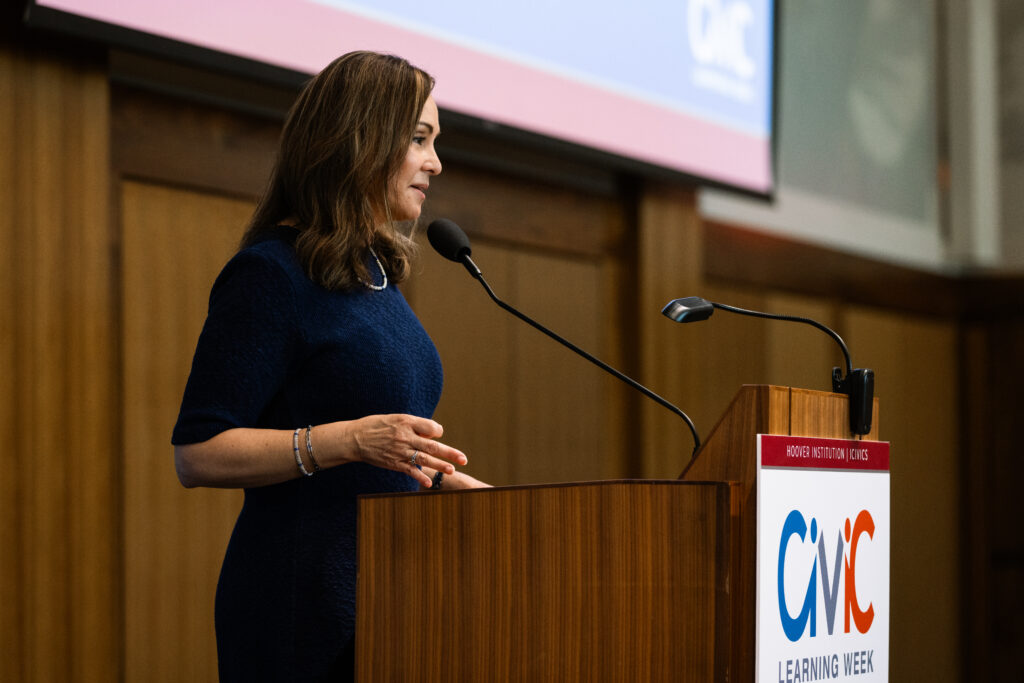
I hope the civics community can coalesce and do our best work to take advantage of the generational moment that is upon us. As Civic Learning Week exemplified, we are best suited to tell the vividly colorful (fluorescent) stories about America and our constitutional democracy that can bring people together at the community level. There is no more important calling on the road ahead, and as always, I’m reminded of a quote from iCivics’ founder, the late U.S. Supreme Court Justice Sandra Day O’Connor: “We pay a price when we deprive children of the exposure to the values, principles, and education they need to make them good citizens.” My only edit would be to have this quote apply to all people, and my call to action is civics for all, one community at a time.

